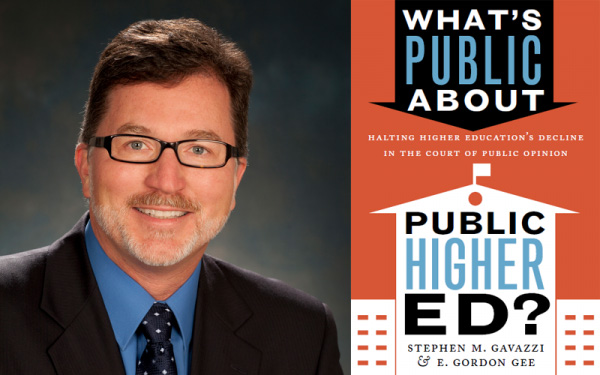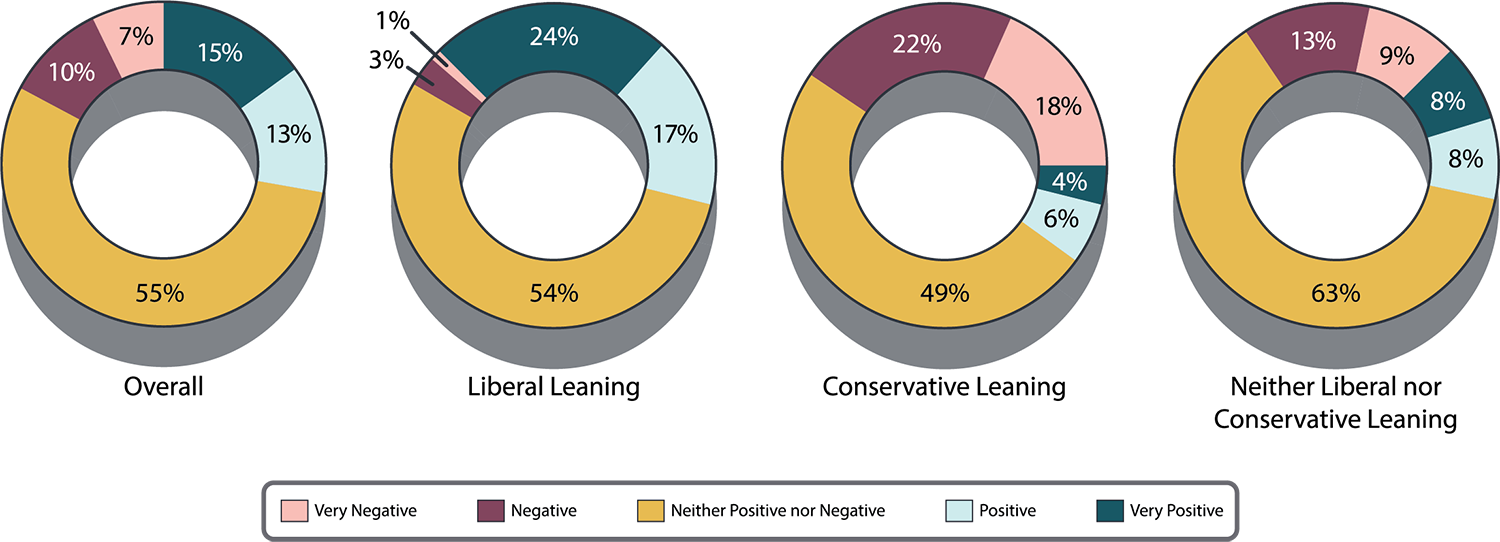Newsletter: Spring 2022

Thank you APP members!
The first quarter of 2022 has brought a continuation of 2021's unprecedented change, from international war to extreme weather and everything in between. We thank you for your loyal support and willingness to share your views on a wide variety of timely topics.
We are happy to welcome many new members to the panel. Since the APP began in June 2017, the panel has grown to over 46,000 members from all 50 states, the District of Columbia and Puerto Rico. In that time, panel members have answered more than 40 different surveys on topics ranging from “American Ballot Box” to “You and Covid,” and the data from these surveys has formed the basis of many academic articles, several mentions in national publications, and one book. In short, your opinions are making a difference!
We look forward to partnering with all of you to imagine, inquire, inspire and inform survey science research.
—Jenifer Hoffman, APP Program Director

Meet CHRR's Interim (and soon to be new) Director
On September 1, 2021, Dr. Stephen Gavazzi assumed the role of Interim Director for CHRR at The Ohio State University, which is home to the American Population Panel. More recently, Dr. Gavazzi accepted the position as CHRR Director, which he will begin in a fulltime capacity on May 16th, 2022.
Dr. Gavazzi earned his Ph.D. from the University of Connecticut in 1991 and joined Ohio State as an assistant professor in fall of that year. Now a professor in OSU's Department of Human Development and Family Science, his distinguished 30-year career at Ohio State has included six years of administrative service as Dean and Director of The Ohio State University at Mansfield campus, in addition to his recent appointment to CHRR.
Dr. Gavazzi has used the panel for three surveys: 1) Public Perceptions of Higher Education; 2) Public Perceptions of How Universities are Responding to Covid-19 and Demands for Social Justice; and 3) Public Perceptions of How Universities are Responding to Climate Change. The data collected from the first two surveys served as the basis of his new book, What's Public about Public Higher Ed?, co-written with West Virginia University President and former Ohio State President, Dr. E. Gordon Gee. The third survey is being used by various organizations across the country to set an agenda for better communication between universities and the public about their ongoing efforts to grapple with climate change issues.

“The book that President Gee and I recently published with Johns Hopkins University Press literally could not have happened without the kind of access to public perceptions offered through the American Population Panel,” Gavazzi said. “Our first survey, which was quite in-depth, yielded so much valuable information that had never been gathered on an American sample. This was followed by a mini survey that expanded our understanding of how the citizens of our nation thought about the role that universities could and should play in dealing with the twin pandemics of the coronavirus and the demands for social justice being made through Black Lives Matter and other political movements.” Gavazzi went on to say that, “this in turn became a model that other universities wished to use to tap into climate change issues, thus creating instant partnerships with various institutions of higher learning that were leaders in this area of research.”

Research news: Why you matter
While Dr. Gavazzi's new book is the first published using APP survey data, panel members have made an impact in other surveys that have published findings in journal articles and conference sessions. Highlighted in this edition of APP research news are studies by Dr. Rachel Arocho (Utah Valley University) and Dr. Chris Knoester (The Ohio State University).

Family Forms presented at PAA
At the beginning of 2021, several panel members participated in the Family Forms Survey, a mini survey that asked respondents about their knowledge of alternative reproduction options, such as egg or sperm donation; if their parents had used any of these options to conceive; or if they had used or considered using these options to conceive.
The data collected informed research by Dr. Rachel Arocho, principal investigator and Assistant Professor at Utah Valley University who led a team of graduate and undergraduate students studying the topic. Preliminary research findings were presented in a poster session titled “Family Forms Survey: Identifying Donor-Conceived Offspring, Donors, and Recipients in a National Panel” in May 2021 at the Population Association of America's (PAA) annual conference.
Dr. Arocho and her team have shared their gratitude for the opportunity to study family formations at a larger scale than they had originally imagined. Your participation as an APP panel member has provided them with the means to expand their research.

NSASS referenced in SCOTUS brief
Since the landmark National Sports and Society Survey (NSASS) was conducted in 2017, principal investigator, Dr. Chris Knoester, and colleagues have written several journal articles based on what they have learned from the data collection. Some of their studies have been referenced in various news articles:
- 2022, January 4 — Women who love sports don't necessarily attend more games (Verve Times).
- 2021, November 30 — Many Americans don't see sports as promoting love of country (Ohio State News).
- 2021, August 4 — Study finds race, politics influence Americans' views on controversial issues in sports (The Lantern).
- 2021, July 2 — College athletes' payment rights: A question of when and how, not if (The James G. Martin Center for Academic Renewal).
- 2021, February 1 — 30% of gay men and 40% of lesbians are passionate sports fans, survey says (SB Nation: Outsports).
- 2021, January 29 — Americans like sports, but heterosexual men especially do (Ohio State News).
- 2020, November 30 — NCAA amateurism appears immune to COVID-19 – despite tide in public support for paying athletes having turned (The Conversation) .
Even more significant is that the NSASS was referenced in a U.S. Supreme Court filing brief for NCAA v. Alston this past summer. The court unanimously ruled that "the NCAA can't enforce certain rules limiting the education-related benefits colleges offer athletes." Read the full excerpt at on SSI's website: https://sportsandsociety.osu.edu/news/ssi-funded-research-featured-scotus-filing.

Mini surveys: Short in length, yet rich with insights
From time to time, panel members receive invitations to what we refer to as mini surveys. These are brief surveys with a smaller set of questions that cover a variety of engaging topics. These short surveys include test questions for pilot studies or questions produced by graduate students for thesis projects. This past fall, you may have participated in two of our mini surveys: Cancer Awareness and Thoughts on Immigration. Here are some findings from those surveys:
Cancer Awareness
APP members were asked how cancer has touched their lives. Of those who responded:
Click to read the text version of the Cancer Awareness survey results.
Thoughts on Immigration
According to the U.S. Census Bureau, by 2045 less than 50 percent of the U.S. population will be considered non-Hispanic White. Participants were asked how positive or negative do you feel about this? Of those who responded to the question, 55 percent felt neither positive nor negative, while 28 percent felt positive or very positive and 17 percent felt negative or very negative as noted in the chart on the left. The remaining charts break down the results by respondents' self-reported political leaning. Note: Percentages may not total 100 due to rounding.
APP members were also asked if they were born in the United States. Of those who participated in the survey, 5% said no, while 95% said yes.
Of those respondents who answered no, the top five countries listed as their country of birth were: Mexico, Canada, Germany, England, and Romania.

Of those respondents who answered no, they were asked how long they have lived in the United States:
Of those respondents who answered yes to being born in the United States:
Click to read the text version of the Thoughts on Immigration survey results.

Member contact information and survey notifications
The contact information in your member profile is used to send survey invitations, newsletters, and payments. Members can update their contact information by email, phone, text message, and online in their member accounts.
Survey notifications
When the APP sends out a survey, whether paid or a prize drawing, panel members will typically receive three notifications: an initial survey invite, a reminder to complete the survey if they have not done so, and a last call to let them know the survey opportunity will be closing soon. If a member does not wish to participate in a particular survey, they can ignore the notifications and wait for the next survey invitation. There is an unsubscribe link in every email if you wish not to be contacted by email, or if receiving notifications by text message, you can text STOP to stop text messages or PANELOUT to be removed from the panel entirely.
Panel members may also contact us and let us know what survey opportunities they wish to receive, such as both paid and prize drawing surveys or just paid surveys. Members have the ability to login to their member accounts on the APP website and set their notification preferences along with other profile information. Members who have not used their accounts in the past, may need to request an activation link for their member accounts before logging in and updating their preferences.


If you did not receive your survey notifications
Occasionally we hear from panel members who did not receive an email or text message about an upcoming survey opportunity or other notification. While we do our best to make sure notices go out in a timely fashion, some aspects of the process are out of our control, such as Internet Service Providers blocking certain kinds of emails. To avoid notification issues, please add the APP's email address, SMS short code (69493), and phone numbers listed below to your cellphone and email contact lists.
Contact the Panel
Email: panel@appanel.org
Phone: 866-448-6075
Text: 69493 or 844-286-6400




